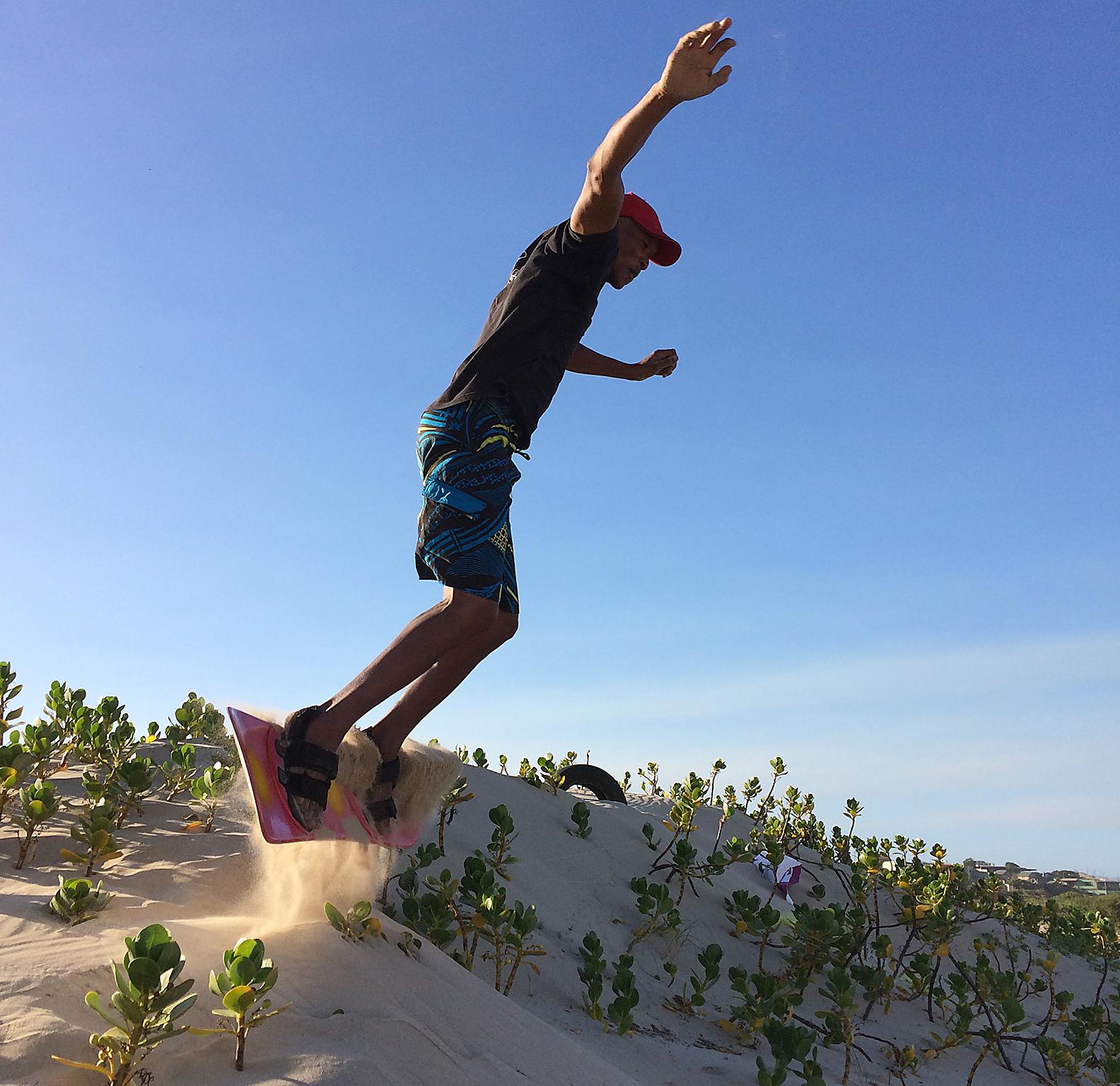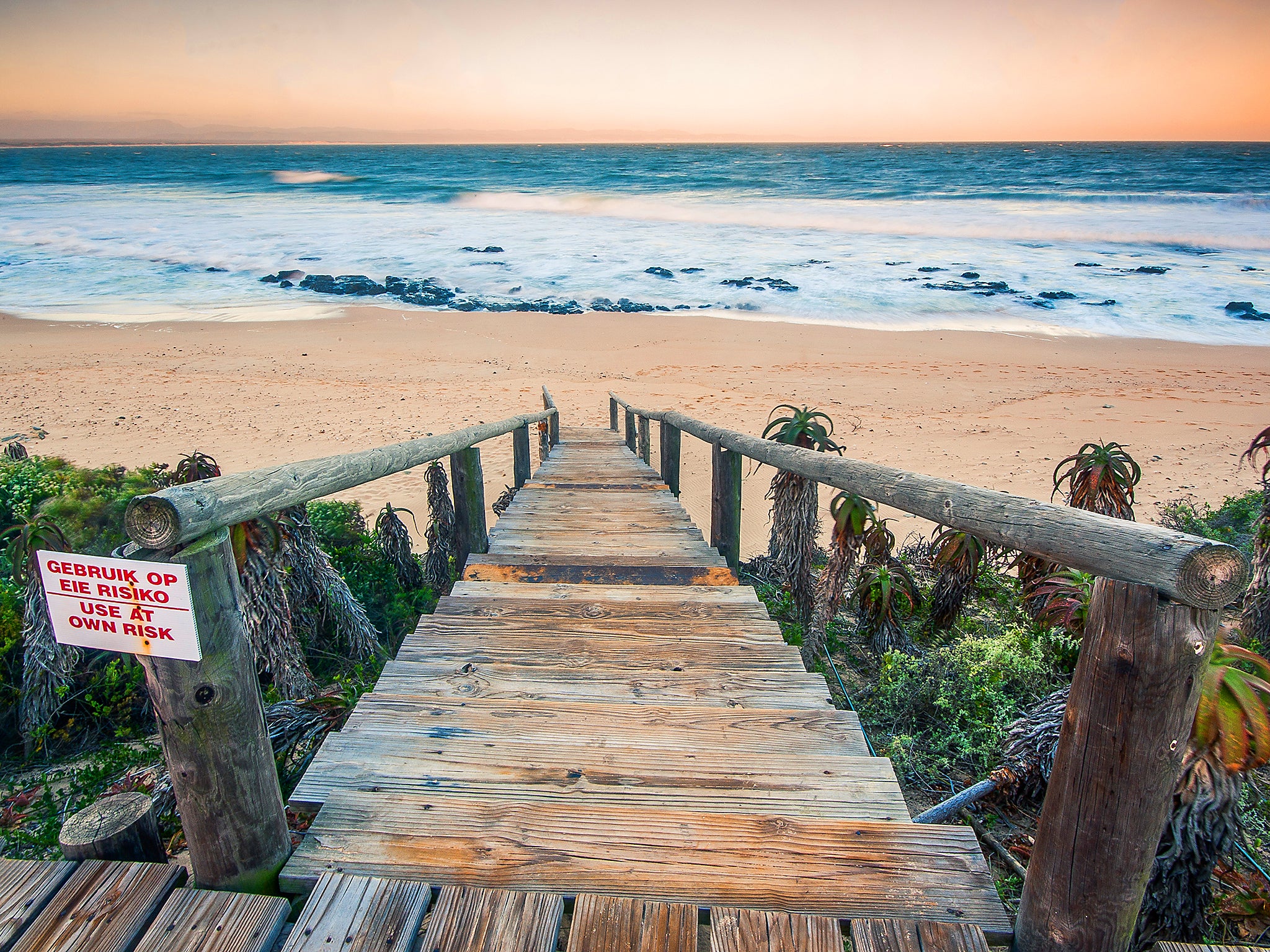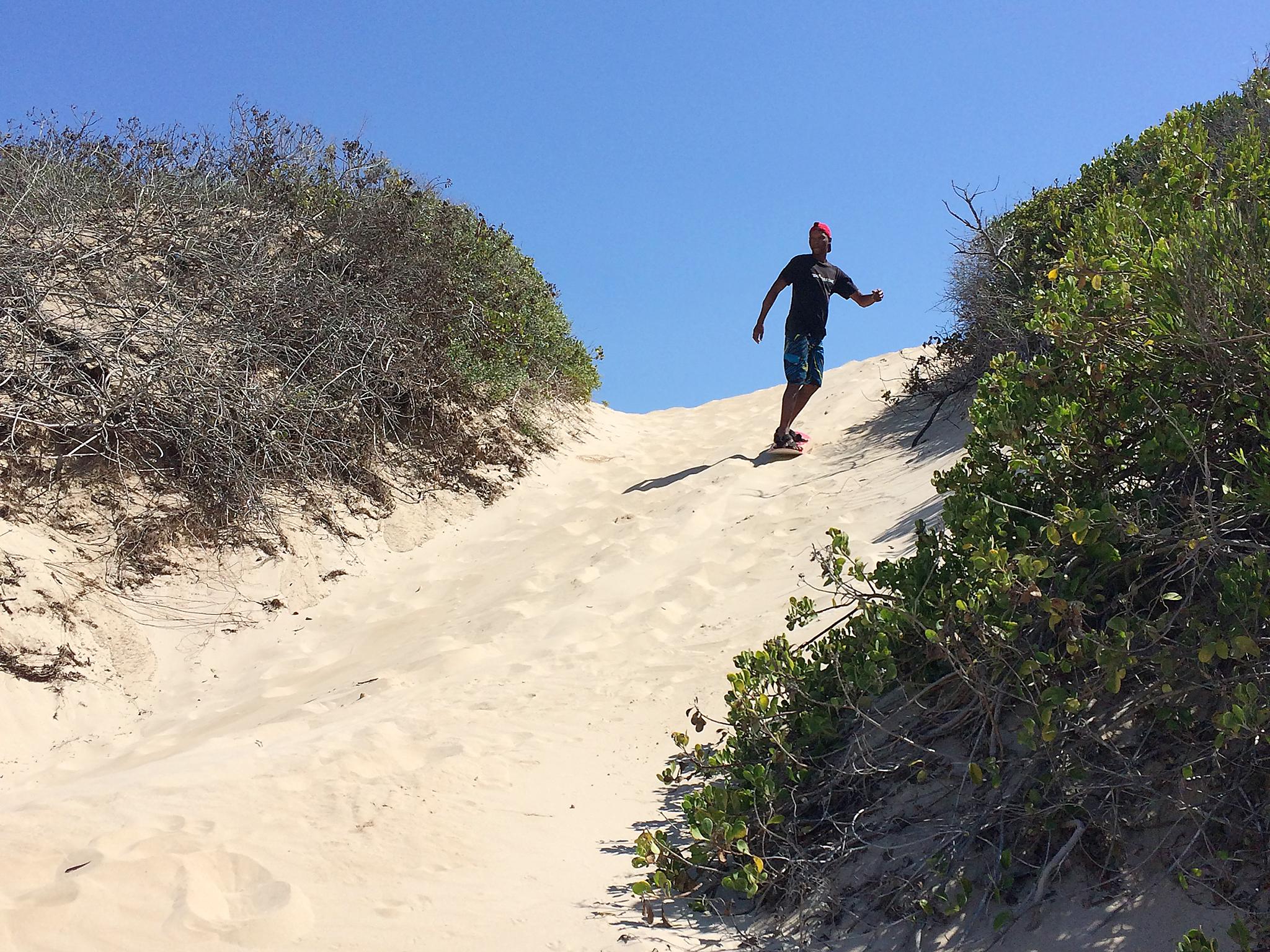South Africa: the past is a foreign country and no amount of magic can restore what is lost
Andy Martin returns to the eastern Cape in search of a long-lost friend. The intervening years have not been kind, and the man he remembered fondly as his guru and guardian is now a fallen angel

Your support helps us to tell the story
From reproductive rights to climate change to Big Tech, The Independent is on the ground when the story is developing. Whether it's investigating the financials of Elon Musk's pro-Trump PAC or producing our latest documentary, 'The A Word', which shines a light on the American women fighting for reproductive rights, we know how important it is to parse out the facts from the messaging.
At such a critical moment in US history, we need reporters on the ground. Your donation allows us to keep sending journalists to speak to both sides of the story.
The Independent is trusted by Americans across the entire political spectrum. And unlike many other quality news outlets, we choose not to lock Americans out of our reporting and analysis with paywalls. We believe quality journalism should be available to everyone, paid for by those who can afford it.
Your support makes all the difference.“Tokoloshe is a myth,” said Sizwe. “Has anyone ever seen a tokoloshe?”
“Yes,” said Airs. “I have.”
I was sitting in a beachfront bar in a small town on the Eastern Cape of South Africa with half-a-dozen Xhosa guys. Just a few days ago. The sound of the surf outside. Airs had taken me there to discuss the art of magic with some of his buddies, to try to nail down the difference between the sangoma and the ixwhele, distinct varieties of “witch doctor”. Oddly enough, they mainly wanted to talk about Brexit.
I first met Airs 17 years ago. I went to South Africa back in 2000 for the idyllic waves I had seen in Endless Summer but Airs (who had won a serious “Big Air” contest or two) taught me to sandboard instead, way up in the monumental dunes that overlook the Indian Ocean. It’s like snowboarding but on sand. You need to rub in plenty of wax to get a smooth descent. And you have to trudge back up the dunes again. But it’s all worth it for the sheer joy of the ride. And it’s warmer than the swell that seems to come straight up from Antarctica.
Back then Airs was a pure hedonist with an infectious joie de vivre. He was 19 years old and described himself as a “boy” because he had not yet had his initiation, involving – among other rigours – getting circumcised without an anaesthetic. But a beach boy. He taught me a few words of Xhosa, and took me to his grandmother’s house where we ate cornmeal porridge, and he showed me where he had first seen the tokoloshe (or witch). He was born under apartheid, but now Nelson Mandela had changed all that and the ANC was in power and...and it was a time of hope. We even had tea together in a white farmer’s house.
Airs seemed to me then – he still seems – to carry the torch of the new South Africa. Inevitably, I lost touch with him. But back in South Africa for the Stellenbosch literary festival (“Woordfees”), I set about trying to track him down to see what had become of him in the intervening years. I dug up an old friend of his in Cape Town, a white South African engineer. He told me Airs was now working for a backpackers place a few hundred miles east. I phoned them up. A woman told me he was there somewhere. She eventually put him on the phone. It sounded like the same Airs I had known years before. Unchanged. So I hopped on a plane to the Eastern Cape. A big guy called Selwyn picked me up and we drove for another hour or so and I got out and was embraced by Airs. The very same. Now in his mid-thirties but recognisably the same guy: slim, sinewy, in baggy surf shorts and black t-shirt, and a red cap, with a smile of unequivocal friendship.

Just like old times we went out on the dunes together. We stopped at a local liquor store to get drinks. We bought water and a bottle of “Original Sedgwick’s Old Brown”.
Outside, Airs firmly brushed aside a lively trio of likely lads who looked as if they might want to step on my shadow. He had been my young guru, now he was my bodyguard.
My hair was a shade or two whiter than before, and I was carrying an injury, but was otherwise reasonably similar. He had a well-trimmed chin beard that was going grey. His legs had a few cuts from some thorny bushes around the local waterfall and he had a massive scar on one arm from fending off a blow from a sjambok. And he had a few tattoos he hadn’t had before. One was the name of his child, which means something like “They are still beautiful”. Another was the trademark of the gang in which he had become a gang leader in prison. One more thing: he was in love, he told me.
I made one or two cautious, risk-averse, chronically slow descents. Airs came screaming off the top of the dunes, carving across the slope, kicking up sand, throwing in the occasional 360, and pulling off the kind of huge moves that gave him his nickname: fearless, fluid, unstoppable. Sandboarding is all about falling with style. Airs had style the way a bird has feathers. Grace under pressure, as Hemingway would say. He was a natural, a dazzling dune surfer, fluent in body language. I could only dimly remember a few rusty phrases. “Wax on, wax off”, he would say while waxing the board, in an allusion to The Karate Kid. But he really was a master of kung fu and aimed his foot at a point over the top of my head. Which is how he had come to be recruited to the gang when he was in prison.
We sat in the shade of a vertical dune and Airs polished off the bottle of sherry and struggled to hold back the tears as he told me of his misadventures. He should never have gone to Cape Town, he said. Then it would never have happened. That was his big mistake. If only he had stayed on the beach. But by then he was a father, divorced, and he had to earn more money.
At some point he discovered he was HIV positive. “But I knew I would be fine so long as I kept exercising and led a healthy life.” It was when he was practising his martial arts moves in a small apartment that he fatally stabbed a woman. He was using the sword as part of his routine and she had come up behind him. He was tried for “culpable homicide” (we would say manslaughter), pleaded guilty, and sentenced to five years. He thought they should have given him more.
He knew what prison would be like so he went in as hard as he could, beating the living daylights out of anyone who looked at him sideways. He had to be tougher than they were. Hence the gang, and his elevation to gang leader, a “frontline fighter” in any prison riots. Of which there were more than a few.
Airs was angry, mainly with himself for accidentally killing someone, but also with God for having deserted him. “I was angry with my mother for giving birth to me.” He became a satanist. “Satan,” he said, “is not all bad.” But after a time and after conversations with a prison pastor, he gave up all belief in God and Satan, Christianity and Judaism, and now, he said, holding out his arms in a sweeping gesture that took in the sea, the sky, and the infinite sands, believed “only in nature''. The Bible “is just paper”. He served a couple of years of his sentence inside and the rest outside. He got his job back, lectured people on the myths surrounding HIV (for example, how having sex with a virgin can cure you), and led regular clean-up teams along the beach, picking up plastics and litter.
But Airs remained an adherent of magic. He knew people who could set fire to objects at a distance and wield lightning bolts. It remained a mystery to him how it was that mere white men had ever achieved such dominion over black people. “We should have turned the waves back,” he said, speaking of the first white ships to arrive, “but we didn’t”. And now a new wave had brought a young European woman to these shores and they had fallen in love. A classic holiday romance blossomed among the dunes and the waterfall and the lagoon and the natural fruits. “She’s not wild, just mellow. I can do wild,” Airs said, “but I like mellow.” She had gone back to Europe, but they were phoning one another and he was supposed to join her. All he needed was a passport and a visa. But he had no documentation. His original birth certificate was long gone. All he had was a prison record, which wasn’t going to help him. Which might explain in part why he was drinking quite so much.

Apart from the sherry he had already drunk a small bottle of vodka that morning. “I had a headache,” he said. “Then I didn’t.” When we hit the beachfront bar that night, there were a lot of bottles already on the table in front of us. But not enough. We went to the bar and ordered another bottle of whisky (it had to be H&B), a bottle of Smirnoff, and several beers to wash it down.
It was when everyone was voicing an opinion about the differences between the sagoma and the ixhwele – with Sizwe maintaining that the ixhwele was a prophet or seer of sorts, and Airs arguing that the ixhwele had the power to inflict harm, even kill, at a distance – that Airs got up out of his chair to remonstrate with someone called Samson, who was lying on the sofa and drinking mainly vodkas. But he staggered and stumbled and fell over on the sofa, knocking over a few bottles as he went down, flailing. Falling without style. The Xhosa guys were not impressed and glared at him. He had offended against some kind of obscure code. I thought: this could turn ugly. I was also concerned that the guy I thought of as my guardian angel was now lying crumpled up on the floor in a heap. A fallen angel.
Just then, like some kind of genie out of a lamp, his big friend Selwyn came bursting through the door, and helped me haul Airs to his feet. We made our apologies and poured Airs into the car and drove off into the night. I heard that an hour later he was dancing in the backpackers bar and trying to turn somersaults and backflips.
They stopped him because the ceiling was too low.
Andy Martin is the author of “Reacher Said Nothing: Lee Child and the Making of Make Me” (Bantam Press, RRP £18. 99). He teaches at the University of Cambridge. Follow him @andymartinink
Join our commenting forum
Join thought-provoking conversations, follow other Independent readers and see their replies
Comments